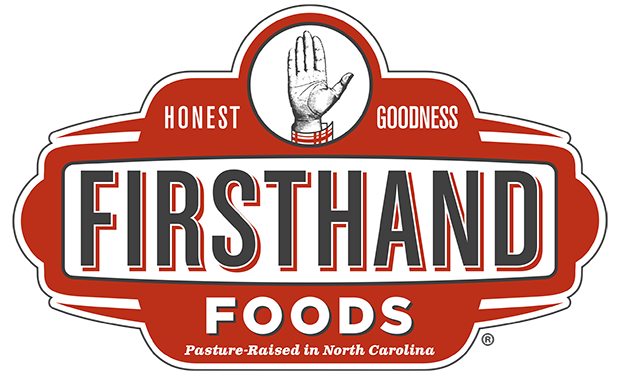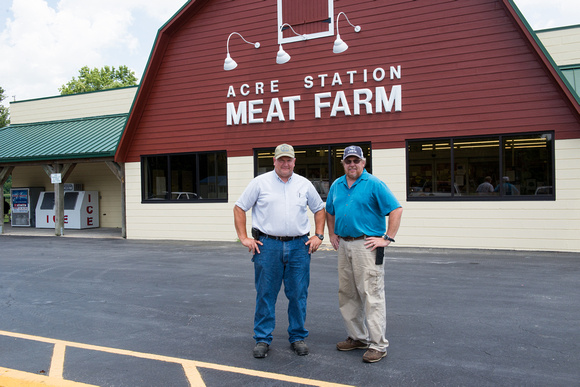Acre Station was started in 1977 by Ernest Huettmann. His sons, Richard and Ronnie, still run it today. The brothers say they don’t remember ever deciding to take over the family business. “In fact,” Ronnie says, “I don’t think we had much of a choice!” But they run Acre Station with pride. “The farmer’s only as good as the processor,” Ronnie says. “That’s the key to good meat, and that’s what we stand by.”
Ernest was a German immigrant who had already been trained as a butcher when he came to the United States at age 19. He settled in New Jersey and began working for a kosher processing plant in Patterson, but he always had ambitions of starting his own butchery. His new wife had family in Terra Ceia, North Carolina, and when he came to visit the area for the first time he was reminded of his home in Germany. In 1977, he moved the family down to North Carolina to pursue his dream.
Before opening the plant, Ernest worked at local grocery store in order to better understand the local tastes and consumer needs he would be called on to meet. Ernest came to realize that local families often needed somewhere to slaughter just a few animals, those that they had raised to feed themselves. He also realized that there was a demand for value-added products and ready-to-eat meats. So when he founded the plant, he opened it both as a processing facility and as a full service meat counter. Eventually, he expanded it to include a full grocery store.
For a time, the grocery store and the processing facility were housed in the same building. When asked about the decision to separate the two into separate buildings years later, Ronnie and Richard give each other a knowing look. “You know how it smells in a smoke room?” Richard asks. “Imagine an entire grocery store smelling like that. People were always asking us, ‘why do your paper towels smell like smoke?’”
In 1977, the business started out just slaughtering 3 or 4 hogs a week. Now the plant processes roughly 150 hogs, 6-12 beef cattle, and 1-2 lambs every week and employs about 23 workers, many of them members of the Huettmann family. Some employees have been there for as long as twenty years. Together, they slaughter, process, and package all of the animals that comes through the plant. Unlike larger, more machinated plants where workers are assigned specific stations on the line, Acre Station’s scale means that workers are able to rotate between tasks each week.
More than just the scale of production has changed in recent decades. Where they used to keep track of order, weights, and outputs, Ronnie and Richard now have an electronic system that lets them intensively track animals from the moment they come into the plant to the time their meat is boxed up and put on a delivery truck. Through this system, they can keep detailed records of animal weights and ensure that all farmers get meat from the correct animal returned to them. To cook their bacon, ham, and sausage, they’ve also switched over to a closed metal smoker with temperature automation. The new system gives them more control over heat to ensure a consistent product. Plus, as Richard says, “inspectors love control.” Still, they wax nostalgic about the old way of doing things. “We used to just dump sawdust into a pit, light a match and toss it in, then close the door and walk away!”
Although it’s been exciting to see the business grow, the brothers plan to keep it at the size it is now. “It takes a lot of hands-on work to make such high-quality retail cuts,” Ronnie says. “That’s a lot of labor for a plant like ours, especially when we care about making all the cuts come out right.” As rewarding as they’ve found it to follow in their father’s footsteps, neither brother wants to push his children to take over the family business if it isn’t the right fit for them. “We want them to have a choice,” Richard says. “Processing isn’t easy, and it’s not for everyone!”
Firsthand Foods is a natural partner for such a small-scale processor. They take enormous pride in producing high quality products, as well as in their humane standards; Acre Station is routinely audited by the Animal Welfare Association. This attention to detail makes the business what is. “As processors,” Richard says, “we have to take the initiative to make each product as good as the farmer intended.”

